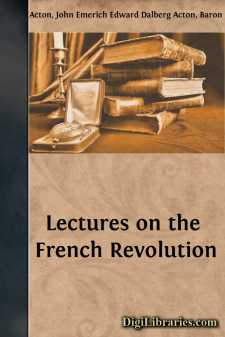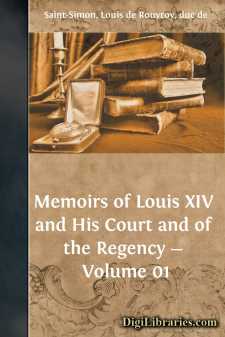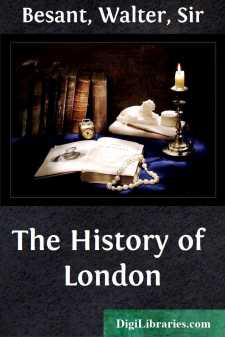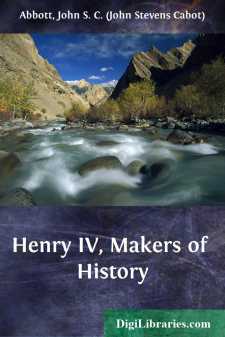History
- Africa 30
- Americas (North Central South West Indies) 50
- Ancient 68
- Asia 58
- Australia & New Zealand 8
- Canada 41
- Caribbean & West Indies 1
- Civilization 20
- Eastern Europe 12
- Europe
- Expeditions & Discoveries 60
- General 77
- Historical Geography 1
- Jewish 9
- Latin America 3
- Medieval 8
- Middle East 14
- Military 248
- Revolutionary 8
- Study & Teaching 5
- United States 353
- Western Europe 56
- World 13
Europe Books
Sort by:
THE HERALDS OF THE REVOLUTION The revenue of France was near twenty millions when Lewis XVI., finding it inadequate, called upon the nation for supply. In a single lifetime it rose to far more than one hundred millions, while the national income grew still more rapidly; and this increase was wrought by a class to whom the ancient monarchy denied its best rewards, and whom it deprived of power in the...
more...
CHAPTER I THE PROTESTANT REVOLUTION 1540-1553 Cromwell and the Monarchy. At the death of Cromwell the success of his policy was complete. The Monarchy had reached the height of its power. The old liberties of England lay prostrate at the feet of the king. The Lords were cowed and spiritless; the House of Commons was filled with the creatures of the Court and degraded into an engine of tyranny. Royal...
more...
INTRODUCTION No library of Court documents could pretend to be representative which ignored the famous "Memoirs" of the Duc de Saint-Simon. They stand, by universal consent, at the head of French historical papers, and are the one great source from which all historians derive their insight into the closing years of the reign of the "Grand Monarch," Louis XIV: whom the author shows to be...
more...
THE FIRST CHAPTER. EGELRED. In the former booke was discoursed the troubled state of this land by the manifold and mutinous inuasions of the Danes; who though they sought to ingrosse the rule of euerie part and parcell therof into their hands; yet being resisted by the valiantnesse of the gouernors supported with the aid of their people, they were disappointed of their expectation, and receiued manie a...
more...
by:
Walter Besant
1. THE FOUNDATION OF LONDON. PART I. 'In the year 1108 B.C., Brutus, a descendant of Æneas, who was the son of Venus, came to England with his companions, after the taking of Troy, and founded the City of Troynovant, which is now called London. After a thousand years, during which the City grew and flourished exceedingly, one Lud became its king. He built walls and towers, and, among other...
more...
Chapter I. Childhood and Youth. 1475-1564Navarre.Catharine de Foix.About four hundred years ago there was a small kingdom, spreading over the cliffs and ravines of the eastern extremity of the Pyrenees, called Navarre. Its population, of about five hundred thousand, consisted of a very simple, frugal, and industrious people. Those who lived upon the shore washed by the stormy waves of the Bay of Biscay...
more...
PREFACE In introducing the student to the history of the development of European culture, the problem of proportion has seemed to me, throughout, the fundamental one. Consequently I have endeavored not only to state matters truly and clearly but also to bring the narrative into harmony with the most recent conceptions of the relative importance of past events and institutions. It has seemed best, in an...
more...
by:
Lewis Goldsmith
PARIS, October, 1805. MY LORD:—Though loudly complained of by the Cabinet of St. Cloud, the Cabinet of St. Petersburg has conducted itself in these critical times with prudence without weakness, and with firmness without obstinacy. In its connections with our Government it has never lost sight of its own dignity, and, therefore, never endured without resentment those impertinent innovations in the...
more...
INTRODUCTION The series of speeches included in this volume ranges, in point of time, from the earlier months of Sir Henry Campbell-Bannerman's Government to the latest phase in the fortunes of Mr. Asquith's succeeding Ministry, and forms an argumentative defence of the basis of policy common to both Administrations. The addresses it contains deal with nearly all the great political topics of...
more...
by:
Annie E. Keeling
CHAPTER I THE GIRL-QUEEN AND HER KINGDOM Rather more than one mortal lifetime, as we average life in these later days, has elapsed since that June morning of 1837, when Victoria of England, then a fair young princess of eighteen, was roused from her tranquil sleep in the old palace at Kensington, and bidden to rise and meet the Primate, and his dignified associates the Lord Chamberlain and the royal...
more...











